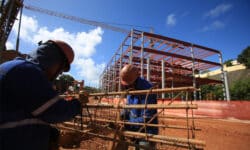Important timelines and deadlines Arizona workers must know to file a work injury claim
If you were injured while on the job, now is the time to report your injury and make critical decisions. Each state has a statute of limitations or date by which workers must report their injury.
Arizona’s workers’ compensation statute of limitations requires an injured worker to report his or her work-related injury within 1 year from the date of injury.
If the worker doesn’t file a claim before the 1 year deadline, he or she may forfeit their right to receive compensation.
In cases in which the worker doesn’t immediately discover their work-related injury or illness, the 1 year statute of limitations begins at the point at which the worker becomes aware of the injury. If you are an injured worker, you should inform your employer immediately. However, notifying your employer is only the beginning of the process. You’ll want to consult an experienced Arizona workers’ compensation lawyer as soon as possible to make sure you’re not missing any important deadlines.
When to report your injury
Once your employer receives notification of your injury, your employer must file an Employer’s Report of Injury with the Industrial Commission of Arizona (ICA) within 10 days. It’s important to note that neither the act of notifying your employer nor your employer’s Report of Injury constitutes an actionable claim for workers’ compensation.
When to submit a claim for workers’ compensation in Arizona
You must file a claim directly with the ICA to receive workers’ compensation benefits. You may file your claim with the state by filling out and submitting a Worker’s and Physician’s Report of Injury form.
You must file your claim with the state no later than 1 year after the date of injury — or, in some cases, 1 year after the date you knew or should have known of the injury (if your symptoms of injury were not immediately detectable), or within 1 year of diagnosis e.g., PTSD.
Industrial Commission of Arizona claims timeline
Once the ICA receives your written claim, they will have 21 days to accept or deny your claim. If the commission denies your claim, you will have an opportunity to appeal the commission’s decision.
To appeal the ICA’s decision, you must file a Request for Hearing. Arizona law requires you to file your appeal in writing at the Arizona Industrial Commission within 90 days of receiving the denial. If you don’t meet that deadline, you will likely be precluded from ever appealing the commission’s denial.
Workers’ compensation claim denial – appeals timeline
The first step in appealing the denial of your workers’ comp claim is to complete a Request for Hearing. After you successfully file your written hearing request, you will receive a notice from the Arizona Industrial Commission informing you of your hearing date in addition to identifying the administrative law judge who will preside over your hearing. The waiting time between receiving notice of your upcoming hearing and the actual hearing date is typically 3 months. However, the wait time may also vary from case to case.
When your hearing date arrives, you will be able to present your case and establish why the commission should reverse their decision to deny your workers’ compensation benefits. You may call witnesses, including doctors, to testify at the hearing on your behalf. You may also present new evidence related to your claim that may improve the likelihood of the commission approving your claim.
An Arizona workers’ compensation attorney can help you navigate the process and present your case in a professional, concise manner. Without a Lawyer, it is likely you will lose. After your hearing, the next step will be to wait for the administrative law judge to make a decision. On average, the judge usually issues a decision approximately 2 months after the hearing. Again, wait times may vary from case to case.
If the administrative law judge denies your claim again, you still have recourse. You may file another appeal within 30 days of receiving the denial. This time, you must file a petition for special action within the court system.
Throughout all of this time, you should hire an Arizona workers’ compensation lawyer to file your petition and guide you through the process.
Questions and answers about compensation for a job-related accident, injury or illness in Arizona
When to consult an Arizona workers’ compensation attorney
While you could proceed through the entire workers’ compensation process on your own, you will likely save time and receive the compensation you deserve much faster if you hire an attorney who is well-versed and experienced in Arizona workers’ compensation law.
From filing your workers’ compensation claim before the Arizona statute of limitations expires to presenting compelling evidence if your case requires an appeal, the Law Offices of Robert E. Wisniewski can do the legal legwork and heavy lifting while you focus on healing.




